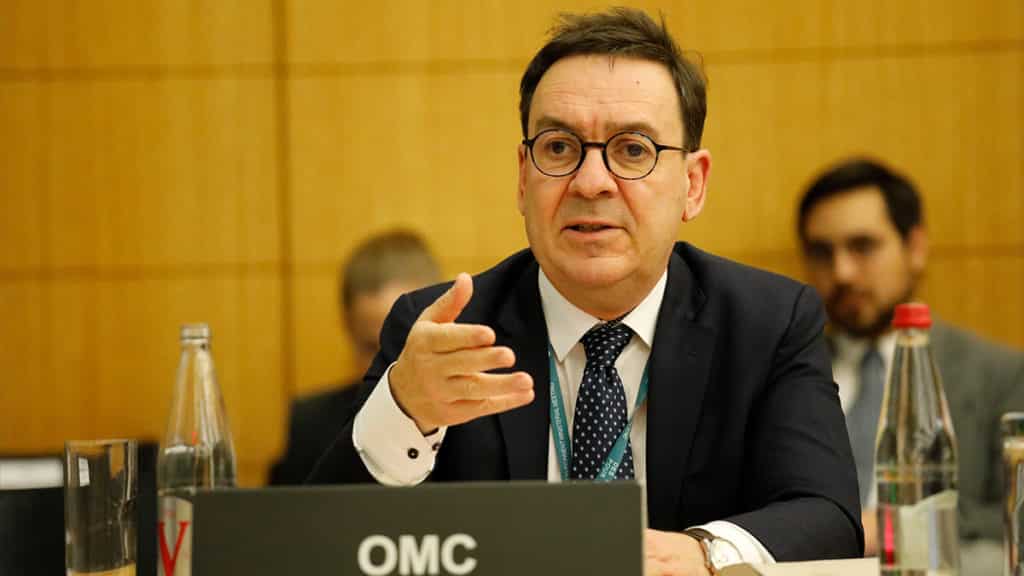El comercio debe formar parte del esfuerzo mundial para combatir la contaminación por plásticos: DGA Paugam

Los esfuerzos internacionales para reducir los desechos de plásticos y promover un uso más sostenible de los plásticos deben incluir una mejor comprensión de la función que puede desempeñar el comercio en el logro de esos resultados, dijo el Director General Adjunto Jean-Marie Paugam el 31 de marzo durante su intervención en la Reunión Ministerial de Medio Ambiente anual de la Organización de Cooperación y Desarrollo Económicos celebrada en París.
(de momento sólo en inglés)
In his remarks delivered to OECD environment ministers and other stakeholders, DDG Paugam said plastics pollution and plastics trade «is one of the most pressing environmental issues that the WTO is currently working on, alongside ongoing global negotiations on fisheries subsidies.»
«Seventy WTO members are co-sponsors to the Informal Dialogue on Plastics Pollution and Environmentally Sustainable Plastics Trade (IDP), of which 50 per cent come from developing countries,» he told a ministerial plenary session on addressing the global plastics challenge.
Welcoming the OECD’s Global Plastics Outlook report as an important contribution to inform the WTO’s work going forward, DDG Paugam said the WTO is trying to understand how trade policy can play a role in tackling the global plastics challenge.
«Trade flows in plastics pollution, whether it is trade in plastic itself, or trade in goods incorporating plastic, such as cars, are made of 50 per cent plastic,» he noted. «So we face a major challenge to monitor exact trade flows from plastics.»
This year’s OECD Environment Ministerial Meeting featured two central themes – climate and plastics. Following the decision on 2 March by 175 nations at the UN Environment Assembly (UNEA-5) in Nairobi to negotiate a legally binding agreement by 2024 to end plastics pollution, the OECD meeting allowed ministers to share current and planned domestic policy efforts to reduce plastics waste and encourage the development of more circular economy approaches to plastics.
DDG Paugam highlighted the need to understand how subsidies contribute to plastics pollution and to identify what market-enabling conditions are needed to encourage plastics reprocessing and plastics alternatives. He also stressed the importance of standards and regulations as areas to explore further.
DDG Paugam called for further international collaboration on the issue and said the WTO will aim to leverage, support and complement the work of the UNEA as it strives to deliver on a global plastics agreement by 2024.
He spoke alongside OECD environment ministers, Deputy OECD Secretary-General Jeffrey Schlangenhauf and Ellen MacArthur, Founder of the Ellen MacArthur Foundation.
A ministerial declaration adopted at the meeting acknowledged the work happening on plastics pollution in other international fora, with the WTO referenced as an important player. The declaration can be found here.















